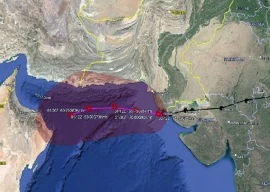
Nation-building — in our case ‘Pakistaniat’ — is certainly a noble cause to pursue and potentially a rewarding project to invest in. It will eventually save us from fracturing apart and drifting away too far from our core identity! It might also help us focus on directing energies in one particular direction without much resistance from religious and ethnic forces. It would equip us better deal with foreign — real and imagined — adversaries. But forcing it on citizens from above through state-driven measures may not be helpful.
The utopian dream of ‘oneness’ has at its heart a dystopian reality of deep fissures. Unification of mind — what some scholars call the unity of thought — does more harm than good in modern societies. And it is neither desirable nor possible. One cannot transform different individuals, endowed with unique thought patterns, into monolithic organism so easily by selling certain cherished slogans and stories. Historically, tyrants and authoritarian regimes tried many solutions — from indoctrination to using coercive measures — to force people into conformity but they most often failed miserably.
All revolutions around the world came about as revolt against a powerful state or clergy attempting to stifle curiosity, kill diversity, and suppress dissenting voices. The powerful Church, enmeshed with Roman Empire, could not contain a brewing volcano in society through edicts, excommunication, and confiscation of properties. It was precisely because of the yearning of human spirit to be as freer as possible. The Philosophes or free thinkers in France — including philosophers, poets, artists, and scientists — happened to challenge everyone speaking from a position of authority. Their beliefs inspired others to study and determine their own opinions, based on reason, which led to uprisings and the shaping of modern day western society.
A slightly different experiment was carried out in states under the sway of the then USSR during the heydays of communism. The ideas of Marx, Engels and Lenin were taught in educational institutions and propagated through state-controlled media with religious zeal. Propaganda was used as an instrument of war against countries ruled by ‘isms’ other than communism. Spying on one’s own citizens was ubiquitous and perfectly ethical and legal. All this was done to ensure conformity — the unity of thought and action — for the newly found greater common good of equalising the unequal. There were essentially strong states without vibrant societies in the communist world. This imbalance between state and society created conditions for disintegration of the USSR within seventy years.
Pakistan cannot break this historical pattern. If it chooses to go down the path of Roman Empire and the USSR by converting different identities through a single curriculum or media control — mainly inspired by religious nationalism and security concerns — it should be prepared for some unintended consequences of further aggravating tensions between regions, ethnicities and religious sects. Pakistaniat, if it is truly a national priority, should be allowed to grow and flourish in an organic manner at the societal level.
The government should not suppress dissenting voices to conceal its weaknesses in governance or to protect some vested interests. It cannot hide behind state-controlled media to shape desirable perceptions and exaggerate its performance in economic, political and social spheres. People in general, however, become more sceptical and cynical when they find striking discrepancy between what is shown on TV and billboards and what they experience on ground. The policy of make-believe stories and window-dressing leads to trust deficit between the state and society.
Instead of creating an environment of fear and censorship, the government should fight fake news and disinformation (mostly churned out on social media platforms) through credible institutions, openness, transparency and accountability. This will create a stronger bond between state and society than shallow speeches of nationalism and an environment of ‘big brother’ watching you.
Published in The Express Tribune, September 13th, 2021.
Like Opinion & Editorial on Facebook, follow @ETOpEd on Twitter to receive all updates on all our daily pieces.





1723621875-0/kylie-(1)1723621875-0-165x106.webp)














COMMENTS
Comments are moderated and generally will be posted if they are on-topic and not abusive.
For more information, please see our Comments FAQ